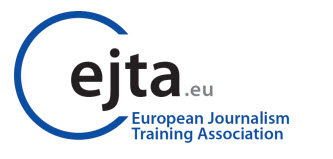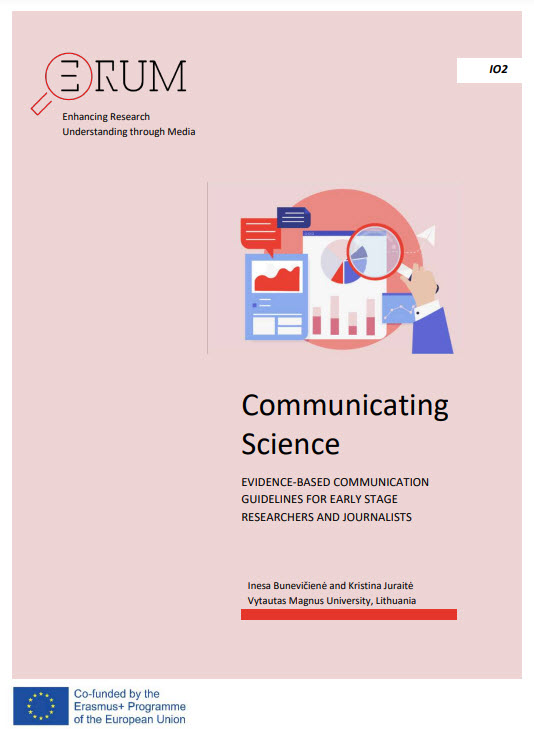The Erasmus+ project Enhancing Research Understanding through Media (ERUM) has published guidelines which should support students, young journalists and researchers in the development of their science communication skills and contribute to a better understanding of the role of media in communicating science to non-scientific audiences.
The Guidelines are based on prior research conducted in the project, a survey amongst journalists and media professionals, as well as a literature review. The COVID-19 pandemic has proven that there is need for further guidance as far as the exchange between media and science is concerned. Journalists have to deal with scientific information, avoiding phenomena such as false balance, while at the same time, (young) scientists have to reflect upon the communication of their scientific findings to a broader audience. With the preparation of the guidelines, the ERUM team would like to offer a useful tool to both – (young) journalists and (future) researchers!
ERUM is a project carried out by university partners from Austria, Cyprus, France, Greece, Lithuania, Luxembourg and Spain and focuses on the question how universities and media professionals can work together and learn from each other to improve the quality of information amidst changing and dynamic flows of information. Within the project, various events bring together journalists, researchers and students. In addition, the team produces freely accessible materials such as reports, guidelines and open educational resources for higher education.
The guidelines are available for download here.
Publication reference:
Bunevičienė, I., & Juraitė, K. (2019). Enhancing Research Understanding through Media. Communicating
Science. Evidence-based communication guidelines for early-stage researchers and journalists. Vytautas
Magnus University, Lithuania. Erasmus + Programme.





